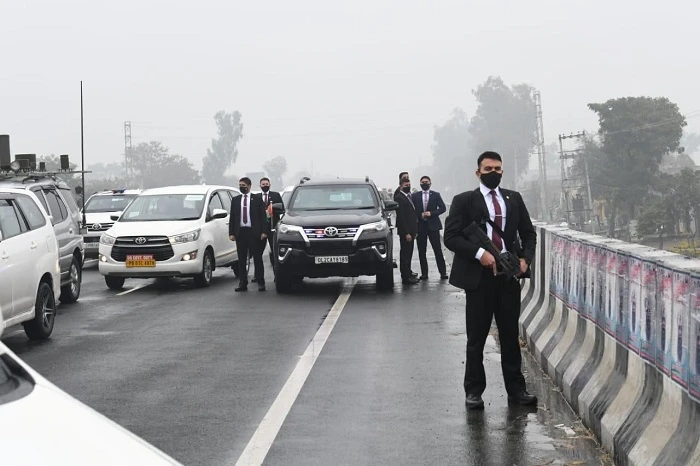Riding on the frictions caused by the farmers’ agitation, the Pakistani deep state poses a serious security threat to Prime Minister Narendra Modi through the activation of Khalistani terror groups, especially in Punjab, ahead of the assembly elections in the border state.
Government insiders told India Narrative that according to an internal assessment, the Pakistani deep state is leveraging a cluster of terror groups under its command to threaten PM Modi’s security. The Prime Minster faces a “grave threat” from Pak based groups including the Lashkar-e-Taiba (LeT), Jaish-e-Mohammad (JeM), Harkat-ul-Mujahideen (HuM), Harkat-ul-Jihad-e-Islami (HuJI), Tehreek-e-Taliban Pakistan (TTP), Hizb-ul-Mujahedeen (HM). Besides, he faces a threat from Left Wing Extremists, and derivatives of LTTE cadres and their collaborators.
But it is the activation of the Pak based Khalistani groups who have been fully mobilised that has been noted with considerable concern in the Indian security establishment. People aware of the threat perception say that Pakistan based militant leaders including Wadhwa Singh Babbar (BKI), Paramjit Singh Panjawar (KCF/P), Ranjit Singh Neeta (KZF), Lakhbir Singh Rode (ISYF/R), have been mobilised to revive extremism in Punjab.

The move has been carefully timed to coincide with elections due in the state in a few months. The diabolic plot includes dispatch of military hardware including RDX explosives, targeting of VVIPs and causing widespread disturbances all over India including Punjab. “Evidence is now streaming in how the Khalistan desk within the ISI has been tasked to revive militancy in Punjab and spread terrorism across India especially the metros including Mumbai,” a source said.
The assessment ahead of the recent visit to Punjab, where the Prime Minister’s security was severely breached, was that PM Modi faced a “high degree of operational as well as positional threat”.
The location of the main programme at Hussainwala was risky as the venue was only 14-15 kilometres away from the India-Pakistan International Border (IB). Besides cross-border criminal gangs engaged in smuggling of narcotics as well as arms and ammunition both by land and by drones have been operating in the area. The drone threat has been amplified with 59 cross-border aerial intrusions taking place last year. The ferreting of ammunition has resulted in several IED blasts last year including in Namak Mandi in Ferozepur and a Tiffin bomb in village Saide Ke in Firozpur district.
Also Read: Mastermind behind Ludhiana blast reportedly hiding in Pakistan
Insiders say that Pak based International Sikh Youth Federation (ISYF) chief Lakhbir Singh Rode was personally involved though his ISI handler in the tiffin bomb blast, using a well-known narco-smuggler in the Ferozepur area, who was aware of the location of explosives that had been dropped by drones. Another Khalistan module, linked to the ISI, was also busted in September, during the peak of the farmers’ agitation.

Gurpatwant Singh Pannu
In the same month, an associate of the Canada based Arshdeep Singh Dalla, the chief of the Khalistan Tiger Force (KTF), who has been a Moga based resident was arrested in Tarn Taran. An IED, grenade and weapons were recovered from him, signalling the serious attempt to revive terrorism in Punjab in the later part of 2021.
People tracking the surge in militancy point out that of late Gurpatwant Singh Pannu (SFJ) has been provoking and luring local Sikh youth with money to target the central government and PM Modi. The arrest in Germany last month of SFJ radical Jaswinder Singh Multani, who had been roped in for a big terror strike in Mumbai is yet another illustration of the Pak deep state reviving Khalistani terror in India, visualising perceived alienation among Punjab farmers as a lever.
Sikh radical organisations of Punjab have also energised attempts to seek the release of Sikh prisoners who have completed their jail term, with the submission of memorandums and organised protests.




















